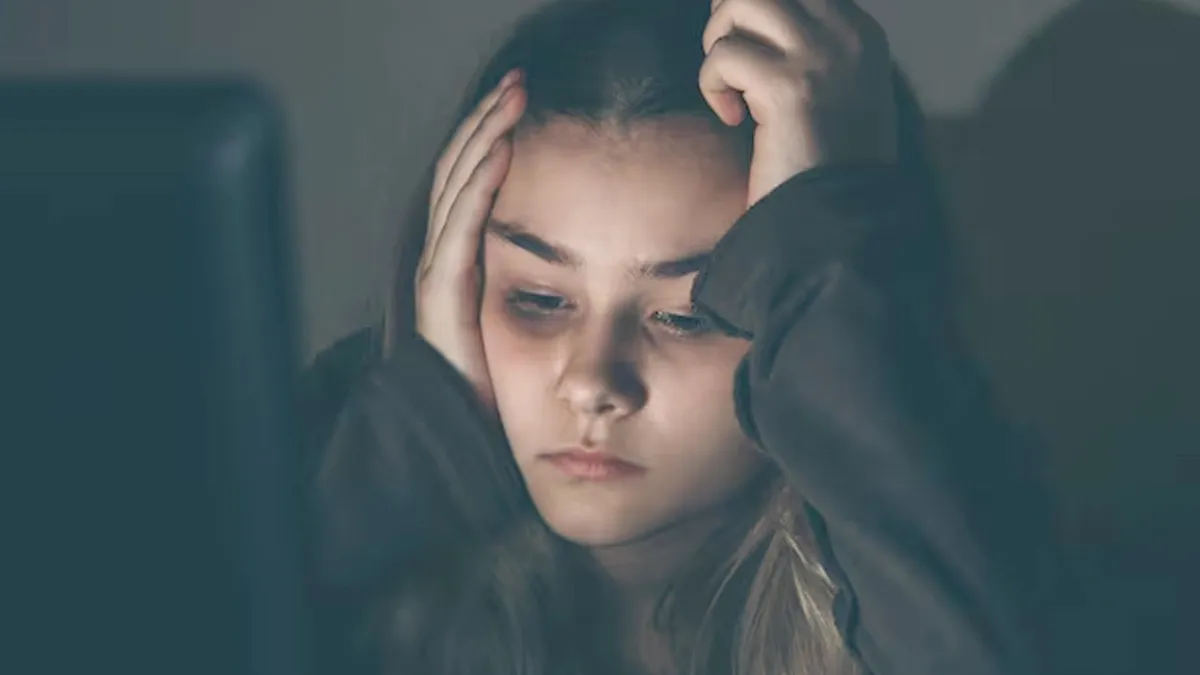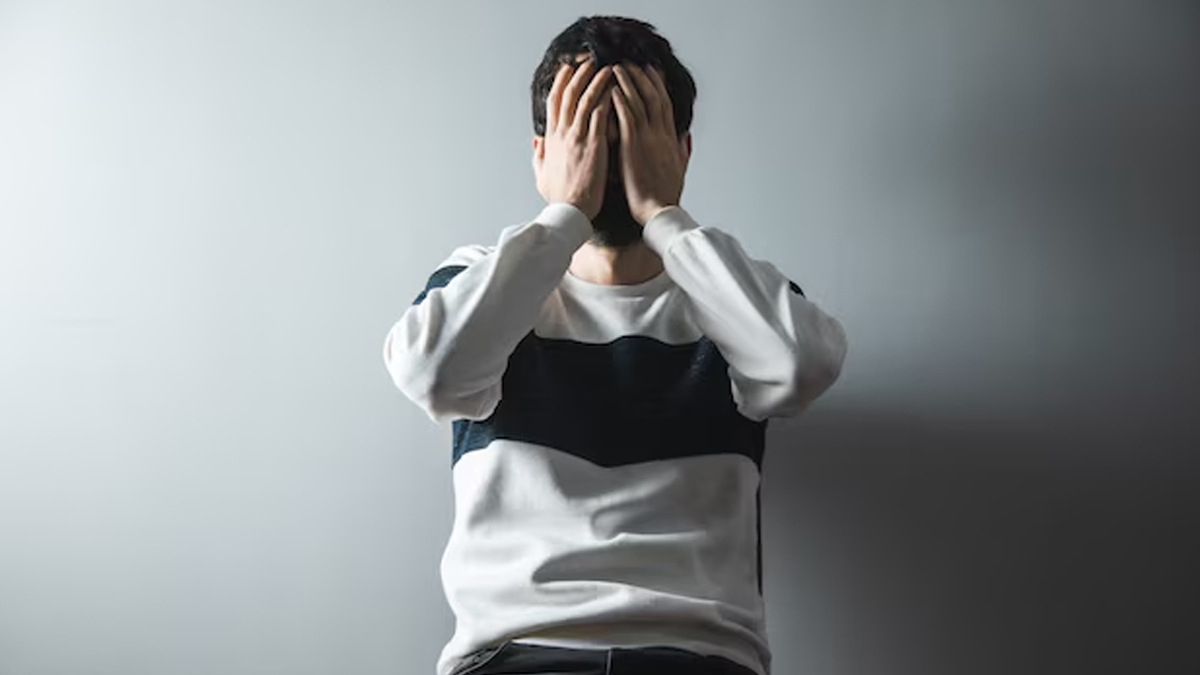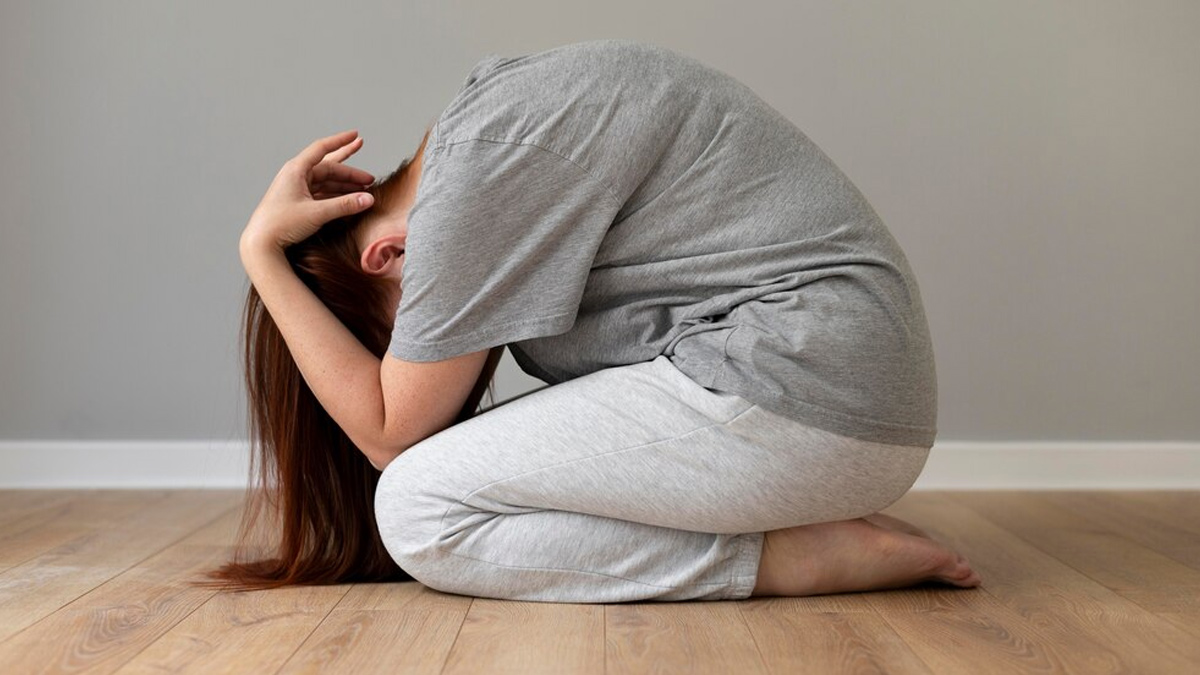
Staring into nothingness, pangs of doom, rapid palpitations, a tightness in your chest, and this feeling of unworthiness linger within, but on the outside, you seem unfazed. One could swear that you were completely alright and just zoned out, but on the inside you felt like you were falling into a deep pit.
Table of Content:-
CHECK YOUR
MENTAL HEALTH

If this sounds familiar, you may have experienced a “silent panic attack.” As opposed to popular representations of how panic attacks manifest, as shown in movies, shows, and books, this type looms over dangerously and creeps in without making a sound. With the absence of an outlet to let out your anguish, this type becomes all the more sinister.
To get an expert’s outlook on the same, we at OnlyMyHealth spoke to Dr Sajeela Maini, Senior Consultant, Psychiatry, Sir Ganga Ram Hospital, New Delhi. She shared her expert insights on how to recognise the signs of a silent panic attack and manage it efficiently.
RELATED: How To Manage A Panic Attack At Workplace?
What Is A Silent Panic Attack?

“A silent panic attack is a type of a panic attack where a person experiences intense anxiety and internal panic. Internally, there is anxiety and panic, but outwardly the person suffering shows little or no signs of distress. Overtly, the person looks normal because the signs are covert, and internally they feel a lot of anxiety”, explains Dr Maini.
Sudden, strong sensations of terror that manifest physically as perspiration, rapid breathing, and a racing heart are known as panic attacks. They can cause breathing difficulties and give you the same sense of fear. This attack can be just as frightening and distressing, and in certain situations, it can even cause physical illness, even if it is invisible.
15 Silent Signs Of A Silent Panic Attack That Go Unnoticed
There are certain symptoms of a panic attack; Dr Maini shares a lowdown of the same.
- Heart rate increases
- Pounding heart
- Palpitations (when you have anxiety of any kind, this could also be among the initial physical signs you may see)
- Shortness of breath (wherein the person feels a tightness in the chest and is unable to breathe)
- Dizziness
- Heart rate increases
- Detachment
- Depersonalisation (feeling disengaged from your body is known as depersonalisation)
- Fear
- Intense sweating
- Chills
- Hot flashes
- Trembling
- Stomach discomfort (research has linked anxiety disorders to irritable bowel syndrome (IBS)
- Nausea
What Follows After A Silent Panic Attack?

Dr Maini says, “The immediate outcomes of a silent panic attack are physical exhaustion, fatigue, emotional distress, and being unable to concentrate—anxiety too heightens. If you don't take care of the anxiety of the panic attack, your anxiety will go further up. It has an impact on your relationships, and your quality of life is disrupted. Also, your physical health goes in for a toss”
“Next, you will engage in social withdrawal as the fear of having to go through another panic attack takes over. Your sleep will also be disrupted, and you will start avoiding long-term situations. This is called agoraphobia, an anxiety disorder that is typified by a particular fear of specific events and locations that cause the person to feel nervous or panic, such as crowded areas, open spaces, and places from which it seems difficult to escape,” she adds further.
How To Help Ourselves And Others Experiencing A Silent Panic Attack?
Following a silent panic attack, a medical intervention is required, and the person should go to a mental health professional and seek help. However, some techniques can be practiced for immediate relief.
Breathing Techniques
“These are very important. Herein, you have to breathe slowly, check your breath, inhale for 4 seconds, and exhale. You should focus on your breathing, and it actually makes an impact. This technique is an essential one”, says Dr Maini.
Punching Therapy (Release Therapy)
That actually creates an impact and lessens feelings of panic and anxiety. For a person who suffers from a panic attack, a release therapy is done wherein you are asked to punch a pillow. By doing this, your stress and anxiety get an outlet for release. This release counters your fears and makes you feel at ease.
Intense Activities
“Any intense activity like cardio causes distraction—distraction is important at that time,” says Dr Maini. You can use distraction as a useful strategy to help avoid the strong feelings associated with anxiety. It can soothe you so that you can concentrate on constructive coping mechanisms and refocus your attention to lessen or eliminate your physical symptoms.
Cognitive Behavioural Therapy (CBT) And Rational Emotive Behaviour Therapy (REBT)
-1736919000266.jpg)
According to the American Psychological Association (APA), attempts to alter thought patterns are typically a part of CBT treatment. These measures could involve identifying the thought patterns that are causing issues and then reassessing them in the context of reality. Understanding other people's motivations and behaviours better, applying problem-solving techniques to handle challenging circumstances, and ultimately learning to feel more confident in one's own talents.
The basic tenet of REBT is that an individual's internal ideas about events or themselves determine their level of happiness or unhappiness, not external conditions. It is believed that thoughts, emotions, and actions are interconnected and impact one another. Since altering one's perspective is typically the most straightforward strategy in a particular circumstance, therapy typically focuses on this.
Chanting A Belief System (If One Exists For You)
Dr Maini says that it actually helps. In fact, if you have faith in God, simply chanting a belief system will make you feel better. Additionally, positive affirmations and reminders will also help you feel better.
RELATED: How Does Ice Help You Calm Your Anxiety?
Takeaway
A silent panic attack is an internal panic disorder in which the sufferer experiences terror and feelings of inadequacy. It can physically show itself as sweating, fast breathing, and a racing heart, which can make breathing difficult and make you feel afraid. Increased heart rate, pounding heart, palpitations, shortness of breath, dizziness, dread, depersonalisation, extreme perspiration, chills, hot flashes, shaking, nausea, and stomach discomfort are all signs of a silent panic attack.
It is normal to feel like you are alone, but remember, you don’t have to go through it all alone. You can reach out to a mental health professional for help and speak your heart out. While your experience is different and you may feel like no one will understand you, know that innumerable people out there relate to you too and will readily be there for you!
Also watch this video
Read Next
Are You A Fan Of Action Movies? Know How Exposure To Gore And Violence Affects Your Mental Health
How we keep this article up to date:
We work with experts and keep a close eye on the latest in health and wellness. Whenever there is a new research or helpful information, we update our articles with accurate and useful advice.
Current Version